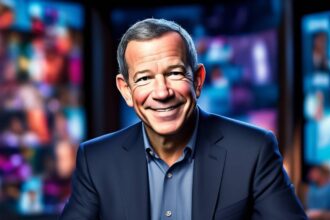In a recent development, Google CEO Sundar Pichai fired around 50 employees for protesting the company’s ties with the Israeli government, citing that it is a business decision. This action drew criticism from some individuals, including the group that organized the protest. As protests against the Israel-Hamas war continue to spread, there is a potential for such actions to impact workplaces. Companies are now preparing for possible employee protests, and Johnny C. Taylor Jr., CEO of SHRM, provides insights on how companies should handle employee dissent and protests within the workplace.
Taylor believes that disruptive actions, such as blocking entrances or taking over offices, are not acceptable in a work environment. Employees are encouraged to share their opinions through appropriate channels provided by companies. While employees have the right to protest outside of work, they should be mindful of actions that may reflect poorly on their company and impact its reputation. Taylor emphasizes the importance of maintaining a diverse workforce and respecting differing opinions while ensuring that business operations are not disrupted by protests.
In response to rising tensions in the workplace, Taylor advocates for good leadership that acknowledges and respects differences among employees. CEOs are encouraged to address workplace conflicts by promoting civil discourse and mutual respect. While diversity is valued in the workplace, discussions on social issues should be conducted respectfully, and disruptive behavior should not be tolerated. Taylor suggests that CEOs establish and communicate their company’s values clearly to employees to prevent conflicts and maintain a harmonious work environment.
Taylor advises that CEOs should generally not respond to employee protests unless they directly impact the company’s values or operations. Employees are encouraged to challenge company practices respectfully, but once a decision is made, they should commit to it. Taylor believes that CEOs should welcome challenges to promote critical thinking within the organization. While some CEOs are concerned about potential employee protests, Taylor believes that proactive measures taken by companies, such as Google, may mitigate the spread of such actions to other organizations.
Meanwhile, Rolls-Royce is expanding its factory in England to accommodate the production of more expensive luxury cars, rather than increasing volume. The expansion is a response to growing demand for customization and bespoke features from ultra-wealthy customers. Over the past year, Rolls-Royce has seen a significant increase in the average amount customers are willing to pay for their cars, driven by complex customization requests. This trend highlights the company’s focus on exclusivity and personalized luxury offerings for its affluent clientele.
Additionally, the US government is forming a panel of leading AI companies, including Google, Microsoft, and OpenAI, to advise on the use of artificial intelligence in defending critical infrastructure against AI-powered attacks. The panel will work with sectors such as telecommunications, utilities, and transportation to address the benefits and risks associated with AI technology. This collaboration between the government and private sector aims to develop best practices for the responsible use of AI and prepare industries for potential disruptions caused by AI-related threats.









